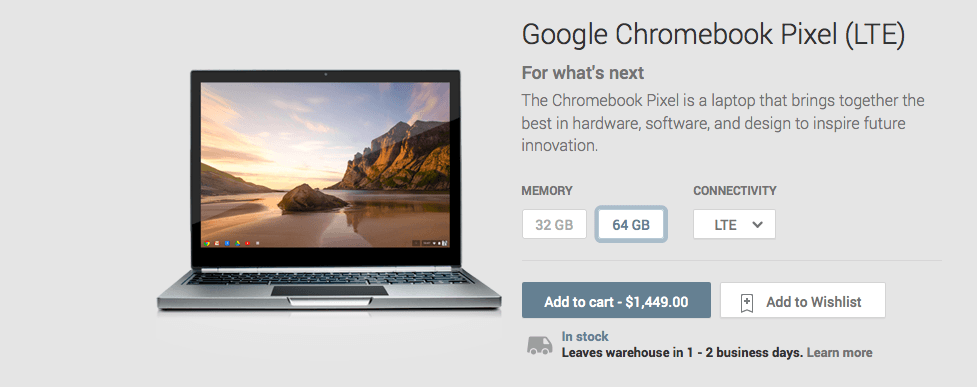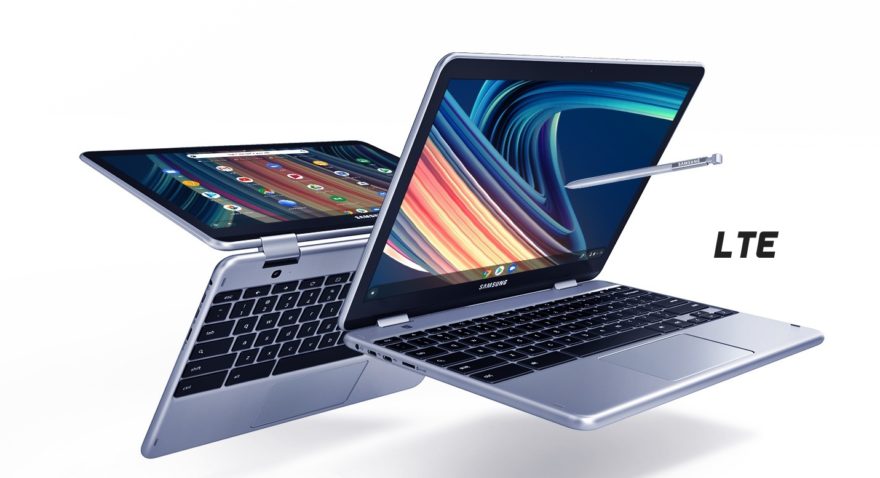Back in February, I noted that the Sarien and Arcada Chromebooks would likely support some time of Wireless WAN connectivity such as 4G LTE. A new code commit confirms my suspicion as the device family just gained the ability for modem firmware updates.

This code isn’t super exciting on the face of things, but from an end result standpoint, many Chromebook enthusiasts will be happy.
There’s been a relative dearth of Chromebooks with integrated LTE connectivity as so few devices have had the feature. I used it with my 2015 Chromebook Pixel and enjoyed the ability to work from nearly anywhere, such as out in a park setting when I didn’t feel like sitting in a coffee shop.

No other Google Chromebooks since then have included an LTE radio and it’s only recently that Samsung brought the feature back with its Samsung Chromebook Plus v2 last year.
Of course, you can always use a phone or tablet as a hotspot if your provider allows it so that your Chromebook is “always connected” but for road warriors, integrated LTE is a huge productivity booster. The Chrome OS Instant Tethering feature makes this connectivity quite seamless as well.
Not much else is known about Sarien and Arcada at this point, other than the former is likely a clamshell while the latter will be a 2-in-1 and are expected to use Intel’s Whiskey Lake CPUs. Both will have a remapped hardware keyboard that appears to bring traditional Function keys to Chrome OS and Linux. Perhaps we’ll see these debut before the end of 2019, given the current progress.



6 Comments
LTE would position Chromebooks a few inches closer to becoming a viable Surface Pro alternative.
Chromebook LTE would raise a question that, to me at least, seems rather obvious. What would be the feasibility of using a Chromebook’s built-in LTE to create a Wi-Fi hotspot?
In other words, anyone considering a Chromebook purchase might want to consider the economics of using their smartphone as a hotspot vs. using their Chromebook as a hotspot.
I just can’t see that there’s a wide enough overlap between those people who’d consider a Surface Pro and Sarien/Arcada to be viable alternatives. IFAIK the Surface Pro doesn’t have an LTE option either.
I wouldn’t hold my breath waiting for Chromebook LTE, just use your phone as a hotspot instead.
I tried an ASUS Chromebook from Amazon last year with “LTE” but it never worked. Tried a T-Mobile SIM in it but it wouldn’t pick up any signal. As far as I could tell it used an LTE band that’s not used in North America or anywhere else as far as I could tell so I gave up and sent it back.
I’m assuming that was the Asus Chromebook C300 – if so, it’s locked to Verizon so a T-Mobile SIM wouldn’t work. When using the supported network/SIM on a Chromebook with LTE, I’ve never had any connectivity issues – always worked well.
My Samsung Chromebook Plus V2 LTE (say that fast) was an exclusive to Verizon, but since it’s unlocked, it works great on Google Fi. I really want a tablet style LTE Chromebook to replace my junky LG LTE Android tablet.
I feel like LTE support on-board a laptop is really niche. For my fellow road-warrior peers at work, the phone hotspot feature is great, especially when paired with something like the Note 9 that has ridonkulous battery life. I would even go for a dedicated mi-fi brick. Having it on-board is nice to have, but far from a sought-after feature. IMHO